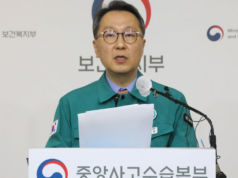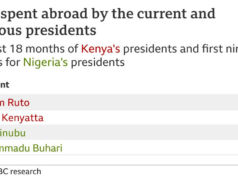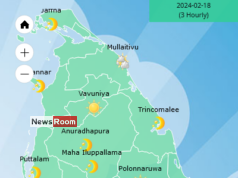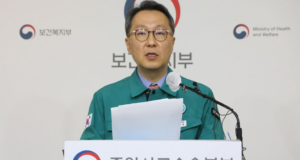 ‘Woman, Life, Freedom’. These words resound vibrantly over the length and breadth of Iran currently. Women passionately voicing these words hail from all walks of life and social classes of the country. Interestingly, they are being joined by males in increasing numbers. That is, male-domination or patriarchy is being challenged from within.
‘Woman, Life, Freedom’. These words resound vibrantly over the length and breadth of Iran currently. Women passionately voicing these words hail from all walks of life and social classes of the country. Interestingly, they are being joined by males in increasing numbers. That is, male-domination or patriarchy is being challenged from within.
These trends in present, unprecedented women’s rights-centred protests in Iran, triggered by the death of an Iranian woman, Mahsa Amini, allegedly while in police custody in mid-September, need to be seen as challenging the basic, theocratic foundations of the Iranian state. At the heart of the protests are what the Iranian clerical authorities perceive to be a woman’s position in society and the life styles, behavior and mores they need to adopt.
These hitherto unquestioned perceptions are apparently at the centre of the protests but the presence of males of multiple social backgrounds in the fast-breaking unrest points to there being more at issue than only gender questions in the crisis. The demand of note is ‘Freedom’ and of equal importance is the call, ‘Death to the dictator’. That is, a significant number of Iranians demand ‘system change’.
However, the gender and political issues in the crisis are inseparable. The perceived oppression of women in Iranian society cannot be viewed in isolation from the broader question of a governing system that has come to be seen as repressive of the totality of the Iranian populace. The Iranian governing system which is conceived as religiously-sanctioned is seen as oppressive by considerable sections of the citizenry, regardless of gender and sex. Thus, it is not possible to speak of the liberation of women without simultaneously broaching the wider question of ushering a system change which will ensure an oppression-free life for all Iranians.
This accounts for the current round of protests attracting males as well. Apparently, the protests by women have triggered a strong empathetic response from males who see the liberation of women as being part and parcel of a wider system change that will ensure the liberation of all. Hence, the inter-connected nature of ‘Women, life, freedom and Death to the dictator’.
The protests have drawn a strong law-and-order kind of response from the Iranian authorities and it is not possible to see the state caving in to any of the demands any time soon. But the issues at hand are likely to continue to figure unsettlingly in the country and would be at the heart of future socio-political crises unless addressed and resolved constructively by all concerned.
The urgency of addressing the present crisis in Iran is underscored by the undeniable legitimacy of the cause of the women protesters. A 21- year-old protesting woman was quoted by sections of the international media as saying: ‘It may sound ridiculous, but all we want is a simple normal life. My dream is to be able to go to college in normal clothes, go out with my friends, laugh and be happy without constant fear of being arrested.’
Such words touch the hearts of people of the democratic world. What is intrinsically wrong with such aspirations? This is the question that needs a reasoned response from the Iranian authorities and their supporters worldwide. In fact it needs to be answered by all those sections that are supportive of regimes that are seen as repressive of women.
If women in other parts of the world too are supportive of the protesting Iranian women, it is because the latter’s cause is seen as just. It has been habitual for the Iranian authorities and their counterparts in like theocratic states, such as Afghanistan, to implement their policies with regard to women as a matter of course but an internal debate and discussion in these states on the relevant questions would provide some evidence to the civilized world that these governments are caring about the dignity of women.
In fact the prime issue needs to be seen as the dignity of women. On this question, the relevant states and their dissenters are likely to agree. That is, the dignity of women is never to be compromised by any quarter on any account. Perhaps, it is with regard to their definitions of the dignity of women and how it is served best that the sides differ. If herein reside the polarities, it is best that these societies get down to discussing them with the hope of reconciling their differences with regard to perception and principle.
In the case of Iran, arriving at a consensus on these issues is bound to be long drawn out. This is on account of the fact that Iranian society is quite accustomed to Western civilization and its ways and mores. It needs to be recalled that the Westernization of Iran and the embracing of its decadence by the political leadership of the country in the late seventies, were chief factors that led to Iran’s Islamic Revolution.
Well known Western journalist Patrick Cockburn in his voluminous and informative book titled, ‘The Age of Jihad’ (A Verso publication), quotes a knowledgeable observer in Iraq as commenting thus in the wake of an election in Iraq in December 2005 at page 126: ‘People underestimate how religious Iraq has become. Iran is really a secular society with a religious leadership, but Iraq will be a religious society with a religious leadership.’
The above pronouncement is a testimony to the fact that there is a considerable cultural divide within Iran; that is, a ruling stratum that claims allegiance to an interpretation of Islam, which it claims is absolutely faithful to the Koran, and a relatively secular civilian public, not all of which is anti-West.
Accordingly, bridging this cultural divide and arriving at a consensus on how the dignity of women should be conceived and best served is a principal challenge for Iran. The same goes for other states of the South that claim to be governed by Islamic edicts. Islam, as in the case of the world’s other great religions, has the potential to bring the best out of humans. The time is long overdue for a meeting of minds within states claiming to be Islamic and among the rest of the world community on how this potential could be tapped to further the best interests of humanity.







